#melevi
Text
OM Brothers React to Teen!MC Going On A Date
Blast Anon asked:
Hi! I was wondering if you could write the demon brothers reacting to teen mc being on a date with someone (could be a girl or boy) please Ingore this if you dont wanna do it!!! - Blast
lmaooo its alright its not too love and sorry about never getting around to this ask i had a little bit of an om slump lolol this is totally not from june 17th...

Lucifer:
He doesn't want to admit it but he actually doesn't want you to go on the date
Very reluctant to let you go out in general
He knows you're going to sneak out anyway even if he says no
Obviously he has to meet whoever youre going on a date with
Doesn't trust them
He's very disappointed in your choice
...you still go on the date if you play your cards right
Mammon:
Says he doesn't care
He does
He stalks you two throughout the whole date
When you get home he tells you why he doesn't like said person
He's very passionate about his speech
Levi:
He doesnt know why youre asking him if you can go on a date
He doesnt know anything about dates
He does, however, check their whole background
If they've done one wrong thing
One sus thing
He's putting that person on a watchlist
Watches through security cameras
Satan:
Makes you read books on adolescents dating
Against letting you go on a date
You still go on the date
Is overprotective
Gives you set times to get home by
If you aren't home by the set time then he will rain hellfire
Asmodeus:
Very excited!!
He wants to help you get ready <333
Helps you pick out an outfit
And do your hair/makeup!
All and all very supportive ^-^
Beelzebub:
He doesn't mind
As long as you're safe and happy
He doesn't care
Just don't do anything to dangerous
Belphegor:
He's asleep when you tell him
Surprised when he doesn't see you
Someone else probably tells him that you're on a date
Unsupportive
He forgets to be mad when you get home because he took another nap

Obey Me! Taglist:
@gh-0st-y | @ch3lun | @oseathepebble | @ventisaircurrent | @epelys | @pastelmages | @xphantasmagoriax | @atlasnessie | @divinesapph | @mystaposts | @ze-maki-nin
#obey me#omswd#obey me shall we date#obey me swd#obey me lucifer#obey me mammon#obey me leviathan#obey melevi#obey me satan#obey me asmodeuce#obey me asmo#obey me beelzebub#obey me beel#obey me belphegor#obey me belphie#obey me teen mc#@.blast.anon
123 notes
·
View notes
Text
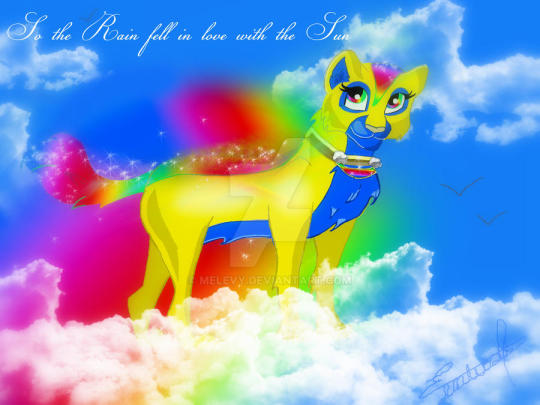
Lady Rainbow by Melevy (2011)
9 notes
·
View notes
Text
Modesty & Class Never Goes Out of Style.
youtube
You-tuber "Melevi Big4l" shares some gems from a mans perspective about how modest & classy women succeeds the promiscuous fast life that is pushed to the forefront of our community.
Please share your thoughts, questions, and opinions!
Lets have an honest, constructive open-discussion below 💋
#open discussion#black women in femininity#classy black woman#feminine black women#feminine energy#black femininity#Youtube
9 notes
·
View notes
Photo
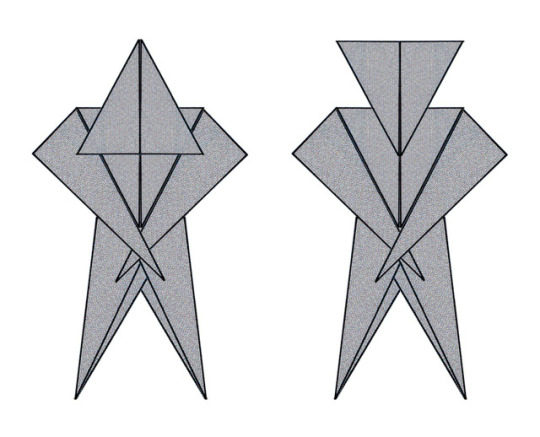
page 367 - a strange Economian cult in the east of the country still practices its traditional forms of worship. Appearing to outsiders as a combination of Sufi dervish spinning and b-boy breakdancing, it is surprising to learn that the group considers public support for the arts to be the height of folly when it comes to government spending. Even pointing out long term ancillary benefits that an initial public investment can yield, adherents to the group often fall back on the words of their founder as rationale when defending their belief: “investing money in the arts is dumb.”
#economics#economy#economist#religion#cult#belief#graph#chart#breakdance#breakdancing#melevi#dervish#sufi#whirl#whirling#bboy#dance#arts#public funding#public funding for the arts#deriving the market demand curve#hood#hooded#outfits#religious#economia#tourism#tourism economia#travel#ethnic
11 notes
·
View notes
Photo
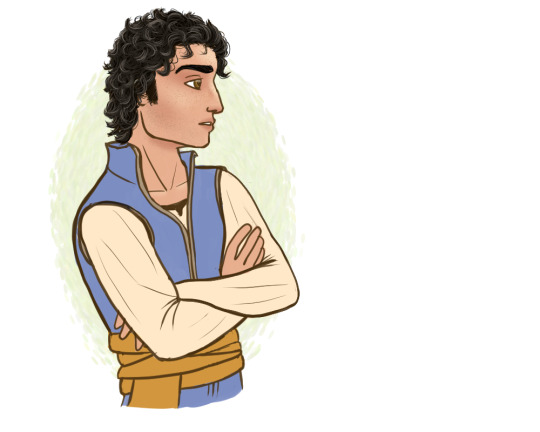
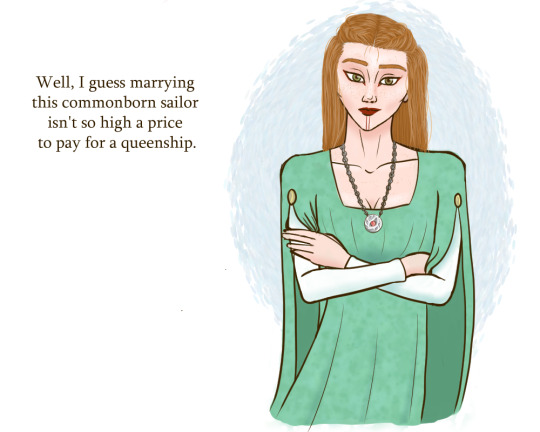

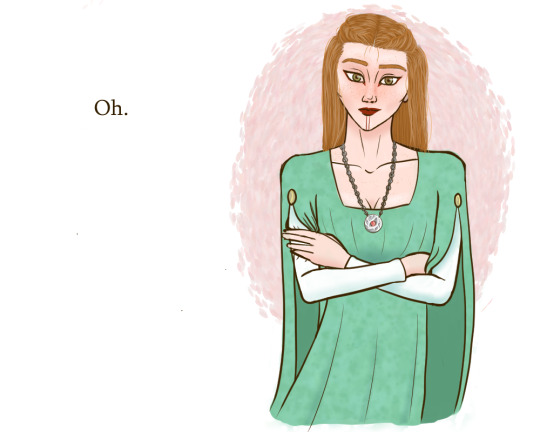
Some prequel characters I’m currently obsessed with
In the year 325 of the times of Union, Tychaos Calanes, king of Mesany, was deposed. To get the kingdom of Selenia to support his claim to the throne, Captain Deralith Aldator, his eldest bastard son, married Princess Melweys Telann, henceforth known as Melevis. The pair grew to be the most successful ruling couple of the Calanes dynasty.
They are Danae and Aldan’s direct ancestors (great-great-grandparents).
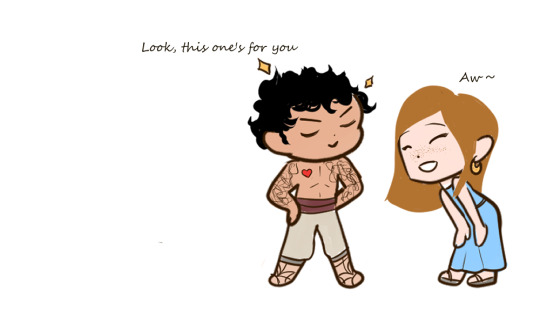
#also Lith is named after Deralith#this is before Deralith grows chubby and hot btw#ignore the fact that he has maori tattoo designs despite there being no equivalent culture in Allastra I'm lazy#these are transparents#Allastra story#my art#aesthetic
18 notes
·
View notes
Text
0 notes
Quote
The minute I heard my first love story,
I started looking for you, not knowing
how blind that was.
Lovers don't finally meet somewhere.
They're in each other all along.
Jalāl ad-Dīn Muhammad Rūmī , also known as Jalāl ad-Dīn Muhammad Balkhī. Mawlānā, Mevlânâ, Mevlevî, and more popularly simply as Rūmī (1207 – 17 December 1273), was a 13th-century Persian poet, jurist, Islamic scholar, theologian, and Sufimystic. Rumi’s influence transcends national borders and ethnic divisions: Iranians, Tajiks,Turkish, Greeks, Pashtuns, other Central Asian Muslims, and the Muslims of South Asia have greatly appreciated his spiritual legacy for the past seven centuries. His poems have been widely translated into many of the world’s languages and transposed into various formats.
#Poetry#Poem#Rumi#Melevi#Mawlana#Balkhi#Persian#Turkish#Greek#Iranian#Pashtuns#Tajiks#Arabic#Quotes#Mevlana
7 notes
·
View notes
Audio
Rumi: A Perfect Voice for the Spiritual Longing and Energy of Our Time
by Krista Tippett, host
Photo by Meir Jacob/Flickr, cc by-nc-nd 2.0
There is no formula for our shows, no template. Each begins with the raw material of a conversation, and we shape its pace and sound and elements around that. I think great radio emerges when the whole feel of the experience seems at one with the words being spoken, taking the listener more deeply into the passion and intent of the voice being heard. Creating our show around the life and words of Rumi has felt a little like having magic to work with.
I take away many gems of idea and image from my conversation with one of Rumi's delightful 21st-century interpreters and successors, Fatemeh Keshavarz. Rumi saw human life and love as the closest we come to tasting and touching transcendence, and he approached all experience with his whole mind, heart, and body.
Fatemeh Keshavarz describes Rumi's "whirling" around a column as he recited poetry — a habit that inspired the Whirling Dervishes of the Mevlevi Sufi Order — as a way to "stay centered while moving." He believed that, as searching and restlessness propel us to keep learning, plowing the ground beneath our feet, they are themselves a form of arrival. In Rumi's way of seeing life, perplexity is a blessed state, sometimes a necessary state. This idea has special resonance, perhaps, in the 21st century when so many basic definitions and institutions of previous generations seem to be up for grabs.
But Rumi's recent "discovery" in the West also holds no little irony. I found this best expressed in my research by a British journalist, William Dalrymple:
"It seems almost unbelievable in the world of 9/11, Bin Laden and the Clash of Civilizations, but the best-selling poet in the U.S. in the 1990s was not Robert Frost, Sylvia Plath, nor Shakespeare or Dante. … Instead, remarkably it was a classically trained Muslim cleric who taught Sharia law in a madrasa in what is now Turkey."
Yet as Rumi has been translated and popularized in the modern West, the religious sensibility behind his beautiful, best-selling words has often been lost.
Fatemeh Keshavarz is adamant on this point: Rumi was steeped in Islam. He represents and speaks to "an adventurous and cosmopolitan Islam." The generous, cross-cultural appeal of his words reflects ideas at the core of Islam that are muted by the extremists and headlines of our time. To the extent that Rumi would deny or subvert those, he does so through his grounding in Islamic tradition, and his profound love for it.
Fatemeh Keshavarz, who was born in Iran — the center of the vast civilization that spawned Rumi and where he remains to this day a household name — takes special solace in Rumi's insistence that we can create worlds and possibilities by way of language itself.
Where that part of the world is now concerned, Fatemeh Keshavarz says, U.S. political culture has adopted a language of fear. Rumi champions and models a language of hope. This is not tepid and naive but full-blooded view of human reality, fully aware of the double-edged sword of the passions and pulls of real human experience. In this, Rumi speaks to those of us on both sides of a real or imagined "clash of civilizations."
As we conclude this show, I hear Rumi as a perfect voice for the spiritual longing and energy of our time. With his vigorous and challenging language of the heart, he reminds us that we need poetry as much as we need science, alongside our politics and within our diplomacy. We need passionate searching words, not just logical decisive words, to tell the whole truth about what it means to be human, and about the past, present, and future of our world.
Here is one passage of many I've seen quoted of Rumi, which I'll now hear with new layers of relevance:
Today, like every other day, we wake up empty
and frightened. Don't open the door to the study
and begin reading. Take down a musical instrument.
Let the beauty we love be what we do.
There are hundreds of ways to kneel and kiss the ground.
~
Out beyond ideas of wrongdoing and rightdoing,
there is a field. I'll meet you there.
When the soul lies down in that grass,
the world is too full to talk about.
Ideas, language, even the phrase each other
doesn't make any sense.
78 notes
·
View notes
Text
0 notes
Quote
Out beyond ideas of wrongdoing
and rightdoing there is a field.
I'll meet you there.
When the soul lies down in that grass
the world is too full to talk about.”
Jalāl ad-Dīn Muhammad Rūmī , also known as Jalāl ad-Dīn Muhammad Balkhī. Mawlānā, Mevlânâ, Mevlevî, and more popularly simply as Rūmī (1207 – 17 December 1273), was a 13th-century Persian poet, jurist, Islamic scholar, theologian, and Sufimystic. Rumi's influence transcends national borders and ethnic divisions: Iranians, Tajiks,Turkish, Greeks, Pashtuns, other Central Asian Muslims, and the Muslims of South Asia have greatly appreciated his spiritual legacy for the past seven centuries. His poems have been widely translated into many of the world's languages and transposed into various formats.
#Poetry#Poem#Rumi#Melevi#Mawlana#Balkhi#Persian#Turkish#Greek#Iranian#Pashtuns#Tajiks#Arabic#Quotes#Mevlana
1 note
·
View note